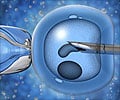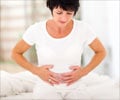What are the Causes of Female Sexual Dysfunction?
Traumatic injury to the genitals or pelvic region, surgical intervention, extensive bike riding, underlying medical conditions, hormonal imbalance, and medications can cause sexual dysfunction.
The causes of female sexual dysfunction are poorly defined. This is perhaps because sexual intercourse or stimulation is an act that involves many systems to function in harmony to reach the stage of orgasm. Sometimes there may be multiple factors leading to the dysfunction.
The causes of female sexual dysfunction are listed below:
Medical causes - These include
- Spinal cord injury. Spinal cord injury can cause nerve damage or paralysis. Women with spinal cord injury have significantly more difficulty achieving orgasm than able-bodied women.
- Bicycle riding. Bicycle riding on long narrow seats is associated with perineal pressure and reduced vaginal and clitoral blood flow and can rarely cause sexual dysfunction.
- Surgery. Surgery of or near the reproductive system, urinary system or abdomen may damage nerves and lead to sexual dysfunction.
- Urinary incontinence. Urinary incontinence can cause embarrassment and avoidance of sex.
- Vaginal atrophy. Vaginal atrophy can cause discomfort during intercourse.
- Systemic diseases like hypertension, high cholesterol levels, diabetes and heart disease can also cause sexual dysfunction.
Hormonal/Endocrine causes - Female sexual dysfunction due to hormonal problems can lead to decreased desire and libido, vaginal dryness and lack of sexual arousal.
Estrogen, a primarily female hormone, is associated with sexual desire. Testosterone, a primarily male sex hormone, plays a role in women's sexual development and function, including sensitivity of the breasts and clitoris. Some women experience diminished sexual desire, absence of sexual fantasies, and impaired sensitivity following menopause or hysterectomy or due to aging as a result of reduced estrogen.
Hormonal abnormalities may arise due to-
- Dysfunction of the hypothalamic/pituitary axis
- Surgical or medical castration
- Natural menopause- After menopause many women feel less sexual desire, have vaginal dryness or have pain during sex.
- Premature ovarian failure
- Pregnancy- the sexual desire may be less during pregnancy, right after childbirth or while breast-feeding.
Psychogenic causes - These include
- Emotional and relationship issues
- Self-esteem
- Negative body perception
- Inability to communicate one’s sexual needs with one’s partner
- Depression, obsessive compulsive disorder, anxiety disorder
- Stress- Stress can affect a person’s ability to have sex. Being tired from a busy job or caring for young children may make the person feel less desire to have sex.
Other causes - Other causes include:
- Excessive alcohol intake and smoking
- Medications- Certain birth control pills can lead to decreased libido. Antidepressants and benzodiazepines used to treat depression and anxiety are associated with loss of libido and inability to achieve orgasm.
Dissatisfaction theory -
In some instances a woman's sexual dysfunction is due to inadequate genital stimulation.
Poor communication between partners may result in men not knowing how to stimulate a woman so that she becomes aroused. This leads to unsatisfactory sex and can cause arousal problems, lack of sexual interest, depression, and aversion to sex.










